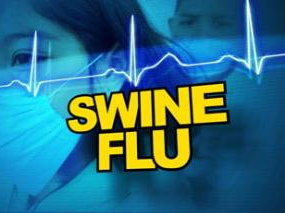The original article can be found in: The Antigua Observer By Tameika Malone
JOHN’S, Antigua- There is no cause for panic in Antigua & Barbuda following reports that Barbados has confirmed one death as a result of the H1N1 flu (swine flu) while St Vincent has recorded several cases.
Medical Officer of Health, Dr Oritta Zachariah yesterday said since H1N1 was discovered in Antigua, the virus has never left.
“It is not anything uncommon to us,” Dr Zachariah told OBSERVER media. “We have different strains of the flu virus and H1N1 is one of the few strains that cause influenza, and we have seen that in Antigua since it was first confirmed here.
“What we see here every flu season is a mixture of H1N1 and other strains beginning with (the letter) H and has (the letter) N as well.”
The Ministry of Health in Barbados said results from 10 samples sent to the Trinidad-based Caribbean Public Health Agency (CARPHA) confirmed four cases of the disease last week with one resulting in death.
On Tuesday, Prime Minister of St Vincent & the Grenadines Dr Ralph Gonsalves sought to assure nationals there was no need for alarm as the island confirmed six cases of swine flu.
Dr Zachariah said Antigua & Barbuda is treating the H1N1 virus as seasonal influenza and recommends persons take every precautionary measure to kill the virus.
“As to the complexity of care and treatment for the persons who would have died from influenza in the other countries, I can’t speak to them, but the one thing we advise is that once you are sick with flu, seek medical attention. Based on that medical attention you would be advised to keep yourself hydrated and increasing fluid intake will help you to achieve that,” she said.There are a number of steps persons can take to avoid getting the flu. These include washing hands with soap and water; avoiding close contact with sick people; drinking lots of fluids; eating healthy meals; covering the nose and mouth with a tissue when coughing or sneezing and immediately disposing of tissues.
Should flu-like symptoms linger, persons should stay at home for at least 24 hours after the fever is gone without the use of fever-reducing medicine.
The antiviral drug Tamiflu is recommended for persons in high-risk groups.
The Centers for Disease Control and Prevention (CDC), said those persons include children under the age of five; the elderly; pregnant women; persons suffering from asthma, brain, kidney, liver, lung and heart disease; patients with weakened immune systems; and morbidly obese persons.
Influenza A H1N1 was first brought to the attention of the global community in 2009 and CARPHA has reported that the flu strain is the most commonly identified influenza virus circulating in the Caribbean region.














